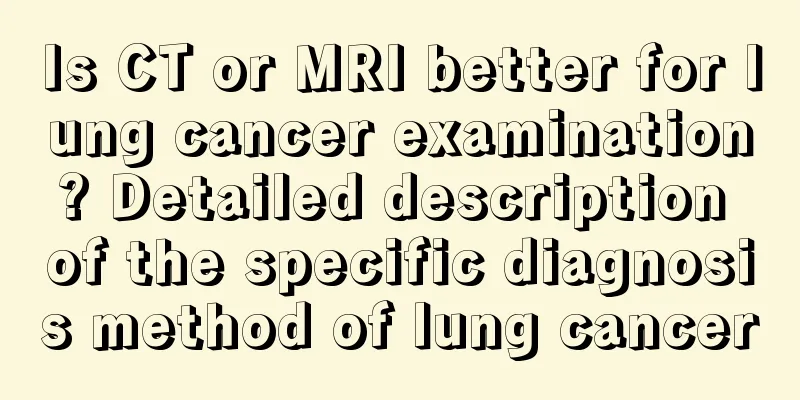What are the adverse symptoms of advanced lung cancer? Introduction to 3 adverse symptoms of advanced lung cancer

|
The symptoms of advanced lung cancer vary depending on the patient's physical condition. Because in the late stage of lung cancer, the condition is already very serious. Therefore, the damage to the body will be very great. Patients often show signs of exhaustion, haggardness, and slight pain. The following is a detailed introduction to the symptoms of advanced lung cancer. 1. Hoarseness is the most common symptom of patients with advanced lung cancer. The recurrent laryngeal nerve that controls the left side of the voice function goes down from the neck to the chest, bypasses the large blood vessels of the heart and goes back up to the larynx, thus controlling the left side of the voice organ. Therefore, if the tumor invades the left side of the mediastinum and compresses the recurrent laryngeal nerve, hoarseness will occur, but there will be no sore throat or other symptoms of upper respiratory tract infection. 2. Shortness of breath and pleural effusion. Almost all patients with advanced lung cancer that has spread regionally have shortness of breath to varying degrees. Normal tissue fluid produced by the lungs and myocardium flows back through the lymph nodes in the middle of the chest. If these lymph nodes are blocked by tumors, these tissue fluids will accumulate in the pericardium to form pericardial effusions or accumulate in the chest cavity to form pleural effusions. Both of the above situations can cause shortness of breath. 3. Edema of the face and neck. On the right side of the mediastinum is the superior vena cava, which transports venous blood from the upper limbs and head and neck back to the heart. If the tumor invades the right side of the mediastinum and compresses the superior vena cava, it will initially cause the jugular vein to become swollen due to poor blood return, and eventually lead to edema of the face and neck, which needs to be diagnosed and treated in a timely manner. Therefore, lung cancer patients are in great pain in the late stage. They must listen to the doctor's treatment advice on time, control the disease as much as possible, and prevent the above-mentioned adverse symptoms. Don't give up treatment just because of the late stage of lung cancer. This is not a correct attitude towards your own health. You must believe that you and medicine will succeed. |
<<: What causes liver cancer? Be alert to the three high-risk factors of liver cancer
>>: What are the treatments for lung cancer? Introduction to 3 treatments for lung cancer
Recommend
The pores on the face are clogged and small particles grow
The weather is getting hotter and summer is appro...
What are the ways nasopharyngeal carcinoma spreads?
In recent years, nasopharyngeal carcinoma has bec...
How to treat severe rectal polyps?
Polyps are a benign tissue proliferation phenomen...
Clinical classification of malignant melanoma of skin cancer
Malignant melanoma is a highly malignant skin can...
How to place food in the refrigerator
Refrigerators are essential appliances for every ...
How much does early-stage esophageal cancer surgery cost?
How much does it cost to treat esophageal cancer?...
What are the advantages and disadvantages of eye moxibustion?
The eyes are an important part of our body. Nowad...
Symptoms of vomiting blood due to advanced brain cancer
Are the symptoms of vomiting blood in advanced br...
Does light salt water have an anti-inflammatory effect?
If there is some inflammation inside our body, we...
Are footbaths and foot baths harmful?
As people's living standards improve, more an...
What is the response to chemotherapy for pancreatic cancer
What is the response to chemotherapy for pancreat...
What causes silver chopsticks to turn black?
Nowadays, chopsticks are made of various material...
Vitamin K for vascular dark circles
Dark circles have different classifications accor...
What to do if there are too many stray hairs
The so-called "lots of stray hairs on the he...
Can you feel the abdominal tumor?
Tumor is a common symptom in the human body struc...









